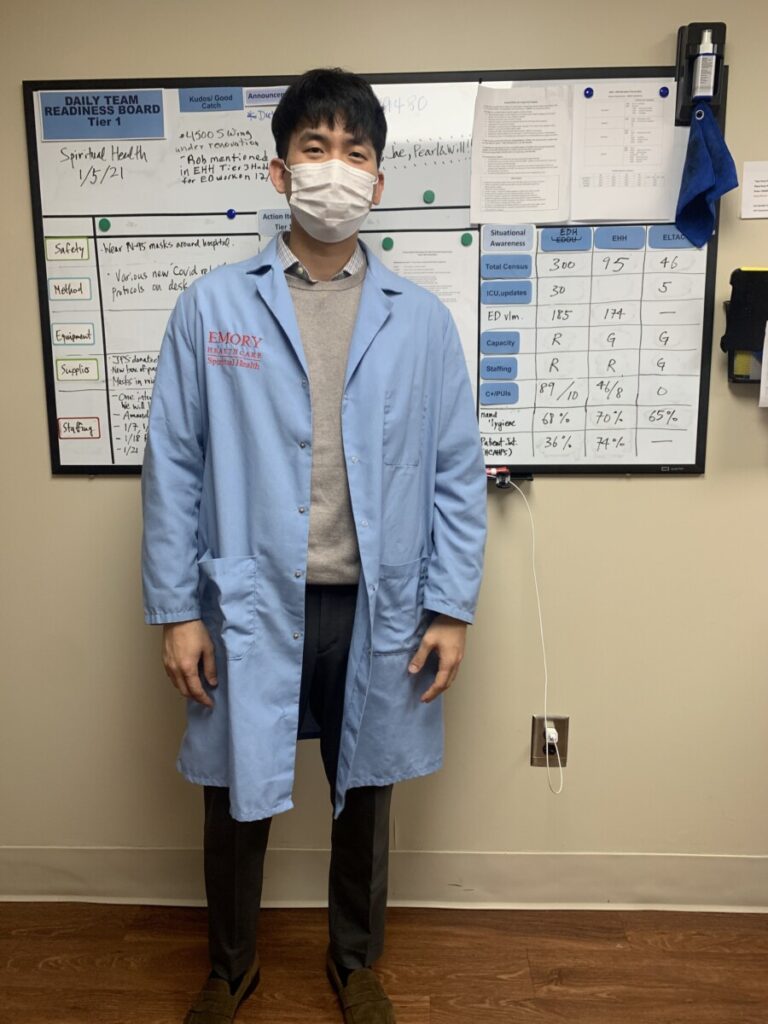By Jae Hwang
There are many spiritual assessments that we can use in a pastoral care setting. As a chaplain, I talk to the patient. David M. Rudd says, “it is common for people to feel hopeless when they are suffering. It is not unusual for someone who’s been feeling [depressed/overwhelmed/ in so much pain] to feel hopeless, like things won’t change or get any better.”* However, recently, I noticed one assessment based on CCSH stages and the HOPE tool, which is really helpful to care for other people.

I have been using the HOPE model based on the hypothesis that spirituality is correlated with favorable health care outcomes. This HOPE model begins with “open-ended exploration” versus an immediate focus on spirituality or religion.
What is good about this is that it uses language and an approach that can be understood by spiritual health clinicians and other members of the health team.
Firstly, ‘H’ stands for Hope. We can find the sources of hope, meaning, comfort, strength, peace, love, and connection. In a practical setting, we can ask someone, “What are your sources of hope (strength, comfort, peace)?” “What do you hold on to during difficult times?” “What sustains you and keeps you going?” These questions make people realize what their spirit want.
Secondly, O stands for organized religion. As a caring responder, we can ask, “Do you consider yourself part of an organized religion?” or “How important is this to you?” As we attune to the care seeker, we can observe the environment of the care seeker. In other words, we acknowledge and allow feelings expressed while connecting to the higher power or God.
Thirdly, ‘P’ stands for personal spirituality and practices. We can ask, “Are there religious or spiritual practices you find most helpful?” It can be prayer, meditation, reading scripture, attending religious services, listening to music, hiking, communing with nature. We can also ask, “How can I support you in your spiritual practices while you are here?” These could lead them to discern their sources of distress that they did not intend to share.
Lastly, ‘E’ stands for the effect on medical care and end-of-life issues. We can ask such questions as “Has being sick/hospitalized affected your ability to do the things that usually help you spiritually?” This does not only mean for the chaplain-patient talk. We can use this question with others asking, “Is your current situation affecting your relationship with God or the Holy?” Then, we can end the conversation by saying, “Is there anything I can do to help you access the resources that usually help you?”
I found this tool changed my working experience at the hospital and counseling with the people I talk with. I also experienced this as helpful for others to care for their spiritual health and explore their hopes as spiritual beings. I contemplated these questions during my meditation hour, and I found out these helped me find my weaknesses and the nurturing moment that helped me get through hard times. In other words, it awakens our spirits and makes us entrust God more. I hope this could help others be aware of the need to support others’ spiritual/religious needs.
According to the American Nurses Association & Health Ministries Association, spiritual care is “interventions, individual or communal, that facilitate the ability to express the integration of the body, mind, and spirit to achieve wholeness, health, and a sense of connection to self, others, and (or) a higher power.” Dr. Kwok’s class helped me integrate my body, mind, and spirit to achieve a sense of connection every week in reading, lectures, and discussion groups. In this sense, we can even be spiritually cared for in our daily lives by this class. When we experience spiritual care, we begin to improve relationships with ourselves, others, and the higher power. We also renew our sense of meaning and purpose, and our hopes are renewed. I hope we can take care of our spirits by considering what it means to spiritual care and learning the HOPE model, and using it for others.
*David M. Rudd, “The Clinical Risk Assessment Interview,” in The American Psychiatric Publishing Textbook of Suicide Assessment and Management, ed. Robert I. Simon and Robert E. Hales (Arlington, VA: American Psychiatric Publishing, 2012), 69.
